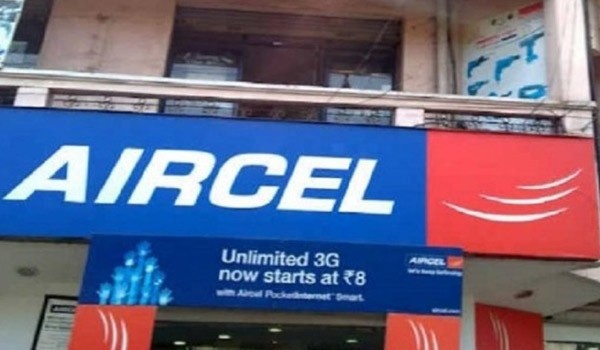Aircel, the debt-ridden mobile service provider, and its two units filed for bankruptcy in the National Company Law Tribunal, underscoring the struggles of India’s smaller telcos in a brutally competitive market amid a crackdown on large loan defaulters.
Detailed talks with lenders and shareholders failed to yield a consensus on restructuring Rs 15,500 crore of debt and getting funding, leaving resolution under the Insolvency & Bankruptcy Code, 2016, as the only option, Aircel said in a statement on Wednesday. Aircel’s decision to move the NCLT was spurred by the Reserve Bank of India’s decision to scrap debt revamp schemes in favour of the Insolvency & Bankruptcy Code.
“No agreement could be reached. Under current circumstances, especially after the 12 February 2018 RBI guidelines, the company believes resolution process under the Code is an appropriate recourse,” the company, majority-owned by Malaysia’s Maxis, said in the statement.
Aircel – founded some 19 years ago by C Sivasankaran who sold it to Maxis for about $1 billion in 2005 – is likely the first major company in India to initiate bankruptcy proceedings on its own. So far, lenders seeking to recover loans have taken the lead on this option.
If NCLT accepts Aircel’s request, it will appoint an interim resolution professional who will have 270 days to find funding and buyers as part of a plan to repay lenders. If that is not agreed, the carrier will be declared bankrupt and sent into liquidation.
The telco, which had about 80 million subscribers in January, is struggling to maintain operations and retain users. One tower company has switched off some of Aircel’s base stations and two telcos have withdrawn interconnectivity as pending dues have yet to be cleared. Aircel is now trying to work out pacts with other telcos to keep its network running and facilitate users who want to port out to other operators.
Aircel hasn’t been able to service debt due to falling revenue and dwindling cash flows after prices were slashed amid intense competition with the entry of Reliance Jio Infocomm in September 2016. The operator’s woes were compounded after its parent, under Malaysian businessman Ananda Krishnan, stopped funding it.
A planned merger with Reliance Communications was scuppered by delays in approvals and a Supreme Court order preventing the sale of Aircel’s spectrum in connection with a separate 2G case.
Aircel, which is unlisted, slipped to an operating loss of Rs 120 crore in December.
“The Board of Directors acknowledged that it has been facing troubled times in a highly financially stressed industry owing to intense competition following the disruptive entry of a new player, legal and regulatory challenges, high level of unsustainable debt and increased losses,” Aircel said in the statement on Wednesday, adding that this had hurt both its business and reputation.
The competitive environment has hit even Bharti Airtel, the No. 1 operator, and has driven a merger between Vodafone India and Idea Cellular. The three companies together control over 60% of India’s mobile subscribers.
“In an industry where large players who have developed pan-India footprint are struggling to survive, marginal players never stood a chance,” said Sanjay Kapoor, former CEO of Bharti Airtel India. “Contrary to popular belief, consolidation won’t give reasonable exits. All stakeholders lose out – customers, bankers and vendors.”
Aircel’s woes have affected not just some 5,000 employees, but also vendors and distributors, while licence fees, spectrum payments and taxes are due to the government.
The company said the bankruptcy filing is not aimed at liquidation but is an effort to resolve the current situation in the best interests of vendors, distributors and employees, among others, to keep the company going and manage its operations.
It is the fourth company to be adversely impacted after Jio’s entry. Norway-based Telenor is transferring its assets to Bharti Airtel, which is also acquiring the wireless business of Tata Teleservices. Reliance Communications has shut its wireless services and Jio is buying its wireless assets.















